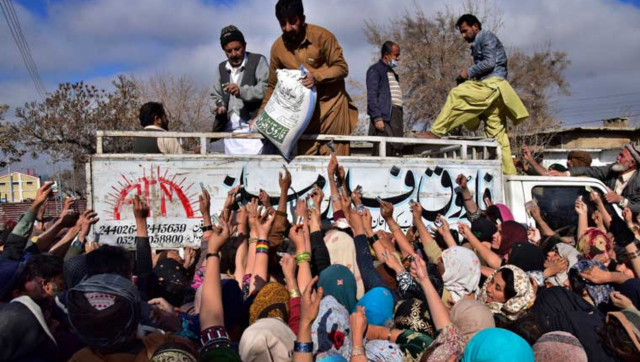Pakistan’s economy is facing severe challenges as evidenced by the soaring prices of essential commodities. A recent headline stating “Egg Prices Soar to 400 Rupees in Lahore” serves as a stark reminder of the economic hardships faced by the people.
Rising prices and inflation The math is simple but alarming – at 34 Pakistani rupees per egg, the cost of a dozen eggs in Lahore has reached a staggering 400 rupees. In comparison, eggs in India cost under Rs7. The root cause of this inflation is Pakistan’s uncontrollable rise in prices with an average inflation rate of around 30 per cent in 2023. Highlighting the severity of the situation, other basic commodities such as onions and chicken have also seen substantial price hikes. Onions, an essential kitchen ingredient, are being sold for 250 Pakistani Rupees, while chicken is priced at 615 Rupees. Climate change and bad policies, particularly in the case of onions, have contributed to these soaring costs. Examining the imported onion scenario, bad policies come to the forefront. In 2010, India faced a similar onion crisis and imported onions from Pakistan to meet the demand. However, a decade later the same imported onions are nearly 80 per cent more expensive in Pakistan showcasing the adverse effects of poor economic strategies. In an attempt to control the situation, the Pakistani government has imposed price ceilings on essential items. However, the implementation of these limits has proven ineffective, as sellers continue to surpass the prescribed limits. For example, while the price ceiling for onions is set at 175 Pakistani Rupees, they are being sold for 250 Rupees. Economic indicators Beyond the impact on consumer goods, Pakistan’s economy is grappling with other significant challenges. Foreign reserves have dwindled from over $8 billion in July 2023 to just under $7 billion. Additionally, the total debt has surged to 63 trillion Pakistani Rupees (approximately $225 billion) as of November 2023, with a substantial portion borrowed in the last few years. The successive governments, led by Shehbaz Sharif and the caretaker, have accumulated a staggering debt of almost 12 trillion Rupees (around $42 billion) in approximately 20 months. This debt accumulation poses a significant burden on Pakistan’s economic stability. Amidst this economic chaos, Pakistan is preparing for upcoming elections scheduled for 8 February. However, recent developments in the Senate, with three resolutions demanding election delays, raise concerns about potential disruptions. While these resolutions cite cold weather and security concerns, their non-binding nature and opposition from major political parties make a delay unlikely. Pakistan’s economic challenges are multifaceted, encompassing rising inflation, depleted foreign reserves and substantial debt accumulation. The upcoming elections add another layer of complexity with political turmoil potentially exacerbating the existing economic woes. As the nation navigates through these turbulent times, the need for effective economic policies and political stability becomes increasingly apparent. Views expressed in the above piece are personal and solely that of the author. They do not necessarily reflect Firstpost’s views. Read all the Latest News , Trending News , Cricket News , Bollywood News , India News and Entertainment News here. Follow us on Facebook, Twitter and Instagram.


)

)
)
)
)
)
)
)
)



